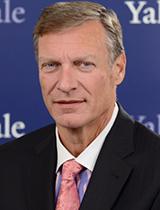Top 29 Quotes & Sayings by Ted Malloch
Explore popular quotes and sayings by Ted Malloch.
Last updated on December 25, 2024.
Adam Smith's image of competition in the marketplace was intended as an adjunct to his detailed description of human motivation in The Theory of Moral Sentiments , in which the pursuit of profit is tempered at every juncture by sympathy and benevolence, and by the posture of the "impartial spectator" which is forced on us by our moral nature.

















